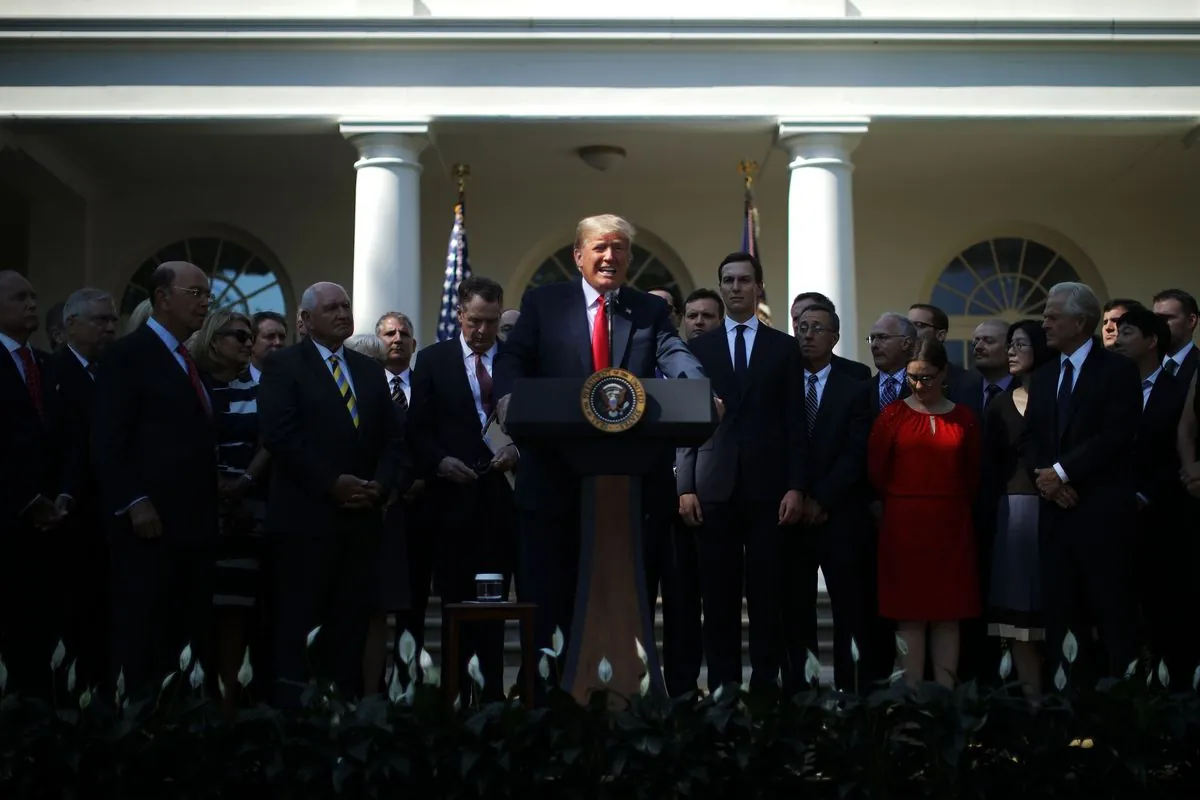In the intricate world of American politics, Donald Trump's relationship with Project 2025 exemplifies a delicate balancing act. This comprehensive plan, spearheaded by the Heritage Foundation, aims to reshape the federal government under a potential Republican administration. Despite Trump's public disavowal, key figures behind the project remain closely aligned with the former president.
Russell Vought, a central figure in this narrative, transitioned from the Heritage Foundation to become a pivotal member of Trump's administration. Appointed to the Office of Management and Budget in April 2017, Vought's trajectory illustrates the symbiotic relationship between conservative think tanks and government positions. The OMB, established in 1970, stands as the largest office within the Executive Office of the President, employing a significant portion of the approximately 4,000 staff members.
Post-Trump presidency, Vought founded the Center for Renewing America in 2021, dedicating his efforts to planning for a potential Trump return. This organization, along with Project 2025, represents a concerted effort by conservative groups to prepare for a Republican administration. The Heritage Foundation, with its substantial annual budget exceeding $100 million, plays a crucial role in shaping this vision.
Project 2025's comprehensive nature has made it a target for critics and a potential liability for Trump's campaign. Recent polling indicates a generally unfavorable view among those familiar with the project. In response, Trump has attempted to distance himself, claiming ignorance of its backers despite previous associations with key figures like Kevin Roberts, president of the Heritage Foundation.
"It's good that President Trump and his campaign distance their campaign from anything else, right? I mean, they're trying to win an election."
This strategic distancing, described by Vought as "graduate-level politics," underscores the complex dynamics at play. While Trump publicly maintains separation, Vought reveals ongoing support and collaboration behind the scenes.
The crux of Project 2025's influence lies not in its 900-page policy book, but in its network of potential appointees. With over 4,000 political appointee positions in the federal government, the project aims to saturate key roles with individuals aligned with its vision. This approach echoes historical efforts to reshape government, reminiscent of the "drain the swamp" rhetoric popularized in recent years but dating back to the 1980s.
As the November 2024 election approaches, the interplay between Trump's campaign rhetoric and the detailed plans of Project 2025 highlights a broader tension in American politics. The contrast between Trump's vague "Agenda 47" and the comprehensive proposals of conservative think tanks reflects differing approaches to governance and policy implementation.
The potential impact of Project 2025 extends beyond specific policies to the very structure of government operations. Training videos obtained by ProPublica and Documented reveal efforts to instruct future appointees on navigating bureaucracy and implementing conservative policies effectively.
In the end, Trump's relationship with Project 2025 and its architects reveals a strategy focused more on personnel than policy specifics. As the 2025 transition looms, conservative groups are determined to avoid the scramble that characterized the early days of Trump's first term, leveraging the Presidential Transition Act of 1963 to ensure a more prepared and ideologically aligned administration.
This approach underscores a fundamental shift in political strategy, emphasizing the importance of having the right people in place to implement an agenda, rather than relying solely on top-down policy directives. As the election draws near, the true impact of Project 2025 may lie not in its public reception, but in its potential to shape the very fabric of a future Republican administration.
